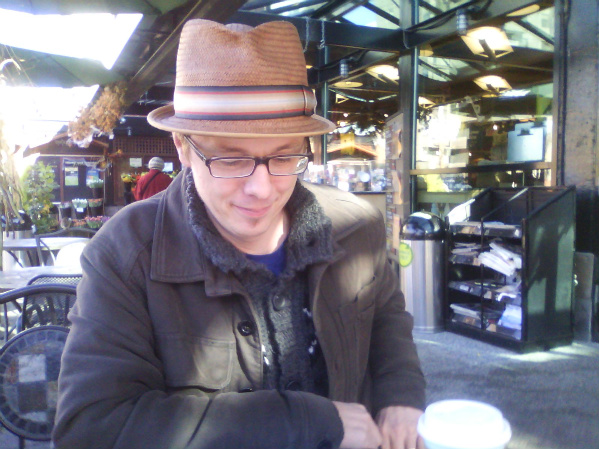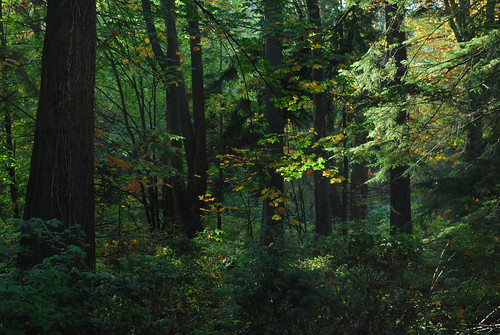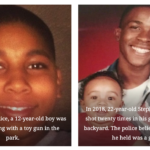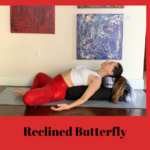Last week I was fortunate enough to meet Craig Hall, Rumble Productions‘ Artistic Producer and soon to be Vertigo Theatre‘s Artistic Director. Craig is producing his last show in Vancouver before heading for Calgary, a favourite play of his called Snowman by Greg MacArthur. This is Part 3 of that interview, focused on rehearsing of Snowman.

As you read the interview below, the lines in bold are my questions and the chunks of elegant prose are Craig’s answers.
What was the inspiration to get the actors of Snowman to rehearse in Stanley Park?
To be honest with you it was kind of circumstance. Besides their being a lack of theatres in this town — especially theaters that are artist run — there’s a lack of rehearsal space, a lack of places to actually create your plays. Part of the idea behind Progress Lab 1422 was we all got tired of not having a rehearsal space so we built our sets in the rehearsal hall, and rehearsed on the sets that we’re going to be performing on. It was kind of unheard of, in a weird way — it seems strange that it is kind of unheard of, for actors to be rehearsing on their sets from day 1 of rehearsal, but it is. The challenge with the Progress Lab is that there are four companies in there and occasionally, of course, there are conflicts.

That must be a challenge for actors to have to rehearse in a completely new space just days before their opening.
Yeah, it is. And it’s always been a challenge. That was the reason for this rehearsal space, but when there are conflicts, one company of the two has to go somewhere else, and that ended up being us just through the luck of the draw this time. The nice thing is we have a scenario where the venue actually pays for us to go rent somewhere else. In terms of rehearsing in Stanley Park we just needed a place that was of exclusive use where there’s not going to be a yoga class in there after we leave, where there’s not a bunch of Ukrainian women coming into to make perogies halfway through our rehearsal. I like the idea of being able to go out once in a while too, because a lot of Snowman takes place in the outdoors, either in a forest or on a glacier. A lot of it is quite intimate in its nature so it’s kind of got a feeling of two people walking on a path and telling each other a story. We’ve been using it as an opportunity to get out of the room once in a while, wander through the trees to practice our lines and get a sense of what it means to actually look someone in the eye and tell them a story.
Do you think these outdoor rehearsals will influence the way the play is performed?
Oh, absolutely. The first day of rehearsal, we actually left the room. I said “Okay everybody, get your stuff on,” and we went out. And I asked them each to tell a personal story, something that they felt strongly about and a story that they were good at telling, that they really wanted to tell. We did that, we just wandered through the trees and told stories. What I was trying to do was highlight to them that even though they’re telling a story that happened in the past, that all of that emotion, and all of the poignancy of the moments inside these stories are still there and come rushing back when you’re telling them. Because Snowman often has the tone of hindsight, it would be easy to say “Oh it all happened before, so there is no emotion to the story, so I could just tell it.” Well, when I asked these guys to tell their personal stories, especially the two men in the cast, both of them burst into tears, one of them was talking about this life-threatening situation he had with his heart, and the other one was talking about the birth of his son. . . All the emotions were just so on the surface. It was a nice way of showing them that even though this story is told in hindsight it has to be in the moment and real in its telling. It doesn’t matter how much distance there is if it’s an important personal experience, it will have resonance.
Photo by Jarek Zdziech
How do you interpret the creative vision behind Snowman? What do you think is driving that play?
It’s a play that’s about isolation, in a way. These four people are in this very isolated place in northern Alberta or the Yukon– that’s where we think of it as — they come to what you could see as the edge of the world, because they are living at the edge of a glacial shield. They’re all living there together, and theoretically they all love and know each other, and yet they’ve stopped communicating years and years ago. So everything that they’re saying on stage, they’re telling the audience what they were feeling, but they’re not telling each other, and they’re very isolated. . . and kind of frozen. They’ve been going on the same track for so long, they’re not really sure why they’re going down that road any more, and they’ve literally just being traveling north. Because they didn’t have anywhere else to go or anything else to do, and as they’ve done that they’ve forgotten why they’re doing what they’re doing, they’ve stopped communicating with each other as couples sometimes do, and they’re stuck in a rut — they’re frozen in time, in a way, just going through their routine without any heat or passion in what their doing. . .
Greg’s funny because he’s from Montreal and is very much a city kinda guy, a transient guy that goes wherever the work is and so on. But all his plays for some reason are set in the North, and he’s not from there. But I think there’s something in the North the speaks to him in terms of alienation and isolation.
Photo by Jos van Wunnik
What does your creative process involve? Is it like talking to yourself, walking around the city?
It’s exactly that! You make doodles, you talk to yourself, there’s a Shakespearean thing where he talks about “Your eyes in fine frenzy rolling” which is basically that creative moment where your eyes are rolling in the back of your head and you’re just imagining it. I’m a big walker, I think best when I’m just walking around, and you just kind of start picturing it. That’s how I do it anyways, I just start to imagine the world, the rules of the world and then I start to bring other people in to what I’m envisioning and we build from there and it becomes a much more collaborative process. And sometimes I search images online, like for this play I found a picture of this white birch forest. There was something about the stark, monolithic nature of these trees that spoke to me with this play. You just start building a world in your mind. Sometimes it’s an easy thing and sometimes it’s not.
Craig Hall’s last production in Vancouver for the time-being, Greg MacArthur’s Snowman, opens tonight and runs from November 4th – 19th, 2011 at the Art’s Club Revue Stage on Granville Island.






[…] hearing so much about the process and ideas that went into Rumble Productions‘ Snowman, I finally saw Greg McArthur‘s play at the […]